Champions of Change Blog
How Open Government Technology Transforms the Way We Travel
Posted by on August 3, 2011 at 5:16 PM EDTEd. Note: Champions of Change is a weekly initiative to highlight Americans who are making an impact in their communities and helping our country rise to meet the many challenges of the 21st century.
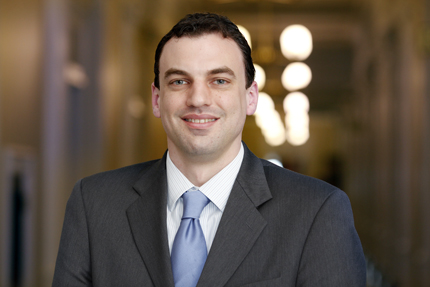
Five years ago, few people knew what "open transportation data" meant. If you wanted answers to seemingly basic questions about the trips you take every day -- whether or not the train you ride to work is running on time, for instance, or what route to school is the safest for bicycling -- you were typically on your own. Information provided by local governments and agencies was spotty at best, and often came attached with restrictive licenses or hefty usage fees. There were no established standards for exchanging data like transit schedules and bus stop locations. In short, it was not an environment conducive to innovation.
It was within that context that I set forth on what at the time was an unusual and ambitious project: creating an interactive online utility for planning multimodal trips (i.e. walking, bicycling, mass transit, or a combination thereof) in my hometown of Atlanta. I had recently sold my car -- a daring move in a sprawling Sunbelt city like ours -- and I was frustrated by the lack of information for people who wanted to travel by modes other than the private automobile. Planning trips on transit meant making sense of a bewildering array of printed schedules, all published in different formats by Atlanta's numerous transit providers. Determining the best routes for biking -- now one of my primary means of transportation -- was largely a matter of trial and error. I knew there had to be a better way.
Learn more about Innovations, TechnologyIncreasing Access to Data with Public-Private Partnerships
Posted by on August 2, 2011 at 5:05 PM EDTEd. Note: Champions of Change is a weekly initiative to highlight Americans who are making an impact in their communities and helping our country rise to meet the many challenges of the 21st century.
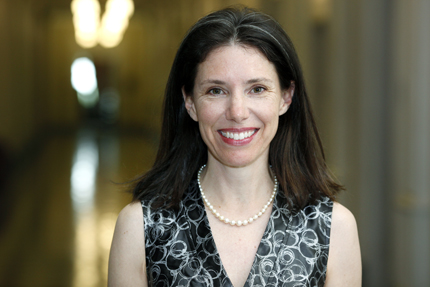
Being named a Champion of Change opens the door to partner with non-profit entities that are publicly visibility. Why? Because while there is genuine interest in making successful businesses from open data, funding the research and development may very well be optimal from grants rather than angels or venture money.
There are a few reasons for this rational. First, access to data is a constant threat to developers working with open data. Governments have a long standing working relationships with nonprofits and they are far more comfortable providing them with data rather than for-profit companies. Second, the public awareness around open data dovetails well within the charters of non-profits. Third, and perhaps most interesting, are the connections being studied between cities with open data apps to make life better and elections of officials promoting their development and use.
Learn more about Innovations, TechnologyHarnessing Open Government Data to a Wellness Intiative
Posted by on August 2, 2011 at 11:53 AM EDTEd. Note: Champions of Change is a weekly initiative to highlight Americans who are making an impact in their communities and helping our country rise to meet the many challenges of the 21st century.
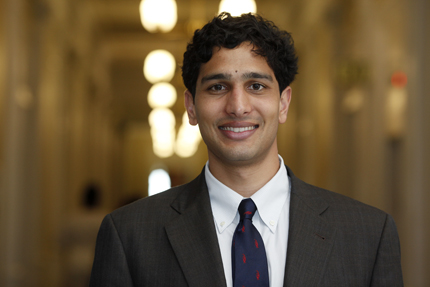
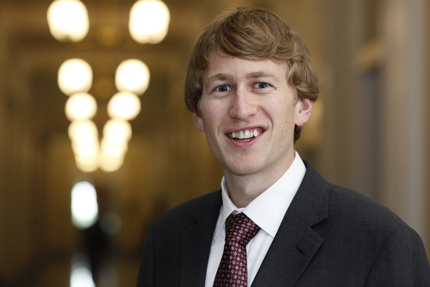
Sportaneous, like many of the other Champions of Change recipients, is both a private company and one which is highly reliant on open government data for its social mission. Sportaneous makes it easy for busy people to get physically active by harnessing location-based technology to facilitate “pick-up” sports games and group fitness activities. Through the Sportaneous mobile app and website, a person can quickly view all group sports games and activities that have been proposed at nearby public facilities. It was only through data sets made publicly available by New York City Mayor Michael Bloomberg’s Office, for example, that we were able to compile the database of parks and public sports facilities intrinsic to our web platform and iPhone app. This productive use of open data sets is part of the reason we were recognized by the White House as “Champions of Change”, an auspicious honor that we found both humbling and massively exciting.
This was especially so on the day of the award ceremony. The day began with a presentation by Aneesh Chopra, the White House CTO, and Vivek Kundra, the White House CIO. Eric Ries, author of The Lean Startup, also spoke briefly, his advice proving especially pertinent to Sportaneous as we stand in our current phase of growth. The theme of creative uses of open data prevalent throughout the speakers’ presentations struck close to home, inspiring ideas that later manifested themselves as additions to our web platform and mobile app.
Learn more about , Innovations, TechnologyOpen Government to Solve Problems: Meet Champions of the Open Innovation Movement
Posted by on August 2, 2011 at 10:01 AM EDTEd. Note: Champions of Change is a weekly initiative to highlight Americans who are making an impact in their communities and helping our country rise to meet the many challenges of the 21st century.
Leigh Budlong is an accidental technologist. After years of experience struggling to make sense of the myriad of zoning rules associated with commercial real estate, often with real implications for entrepreneurs looking to start a new business, she decided to solve the problem by launching a new service. Her award-winning ZonabilitySF app is fueled by open government data, a valuable (public) resource at the center of a movement directed by the President on his first full day in office and replicated by dozens of Governors, Mayors, and even foreign leaders to make it more accessible.
Waldo Jaquith used his free time to facilitate a more open government. Despite long hours at his day job, Waldo found the time to launch Richmond Sunlight, a volunteer-run site that keeps track of the Virginia legislature, including manually uploading hundreds of hours of CSPAN-inspired video of floor speeches, tagging relevant information on bills and committee votes, and inviting the public to comment on any particular legislation. He solicits feedback, introduces new products and services, and encourages others to participate. In short, he embodies the spirit that drives the Internet economy – “rough consensus, running code.”
The Possibility and Promise of Open Data
Posted by on August 1, 2011 at 6:00 PM EDTEd. Note: Champions of Change is a weekly initiative to highlight Americans who are making an impact in their communities and helping our country rise to meet the many challenges of the 21st century.
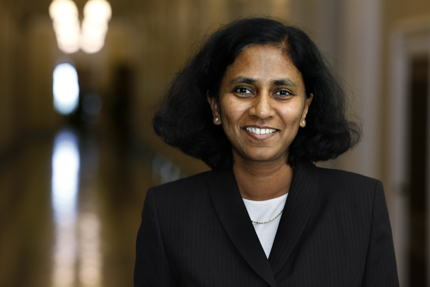
It has been almost two months since I received an invitation from the White House to participate in the Champions of Change event on June 10. I still remember the deep excitement and joy I felt! I read the email over and over again, and spent hours ensuring that that is was not spam.
I received this recognition for the “California Cage Fight” application.
Friendly rivalry and competition leads to innovation and improved efficiency. Our idea was to use humans’ natural urge to do better than their competition and apply it to government. The app enables users to visualize side-by-side data comparisons of population growth, per capita income, unemployment, new housing units, legal immigration rates and more, over a period of multiple years. “California Cage Fight” pits California counties against each other in a “cage fight”, while businesses can use this information to make investment decisions. We believe that this competition will lead to creating a more business-friendly environment and economic growth.
Attending the event on June 10th was one of the most memorable and humbling experiences in my life. Being in the company of the Champions of Change, learning about their innovative ideas and experiencing their passion, was truly inspiring. For me, being one of those champions meant that I have the responsibility to be true to this recognition and continue on the path of causing positive change.
Striving for Success Through Arts Education
Posted by on August 1, 2011 at 4:49 PM EDTEd. Note: Champions of Change is a weekly initiative to highlight Americans who are making an impact in their communities and helping our country rise to meet the many challenges of the 21st century.
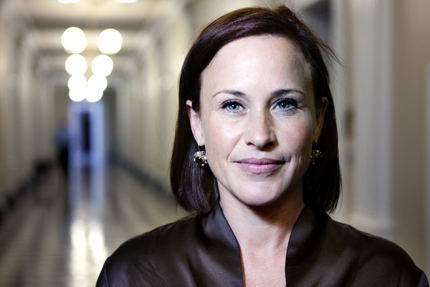
I had the wonderful opportunity to go the White House and meet many of the Champions of Change, who are making great strides in incorporating strong arts curriculums into their schools. I was inspired by the principals I met with, and heard about how they were turning their low-performing schools around by incorporating the arts into the core subjects.
Study after study has displayed how a strong arts program keeps kids in school. This is especially important now when we have a 30 to 50 percent drop-out rate in certain areas. It was amazing to hear from these brave principals, who took action to incorporate those studies into practice, about the successes they are seeing. The children who were furthest behind are now making the fastest gains. Economically, it is a stitch in time—if we keep kids in school, they are less likely to find themselves in the prison system, or pregnant and a member of welfare. The Sphinx Organization program has placed many of its graduates in world class orchestras, which is a great testament to why it is important to keep music programs alive in schools.
I applaud the White House for focusing on these innovators and am grateful that I have had the chance to see these great Americans in action, pushing for success in our nation!
There is a long way to go, but this is the right path. Hopefully, many more will join in this walk toward a stronger America!
Patricia Arquette is an actor and an Advisory Board Member of The Creative Coalition.
Learn more about Education
- &lsaquo previous
- …
- 164
- 165
- 166
- 167
- 168
- 169
- 170
- 171
- 172
- …
- next &rsaquo
White House Blogs
- The White House Blog
- Middle Class Task Force
- Council of Economic Advisers
- Council on Environmental Quality
- Council on Women and Girls
- Office of Intergovernmental Affairs
- Office of Management and Budget
- Office of Public Engagement
- Office of Science & Tech Policy
- Office of Urban Affairs
- Open Government
- Faith and Neighborhood Partnerships
- Social Innovation and Civic Participation
- US Trade Representative
- Office National Drug Control Policy
categories
- AIDS Policy
- Alaska
- Blueprint for an America Built to Last
- Budget
- Civil Rights
- Defense
- Disabilities
- Economy
- Education
- Energy and Environment
- Equal Pay
- Ethics
- Faith Based
- Fiscal Responsibility
- Foreign Policy
- Grab Bag
- Health Care
- Homeland Security
- Immigration
- Innovation Fellows
- Inside the White House
- Middle Class Security
- Open Government
- Poverty
- Rural
- Seniors and Social Security
- Service
- Social Innovation
- State of the Union
- Taxes
- Technology
- Urban Policy
- Veterans
- Violence Prevention
- White House Internships
- Women
- Working Families
- Additional Issues

